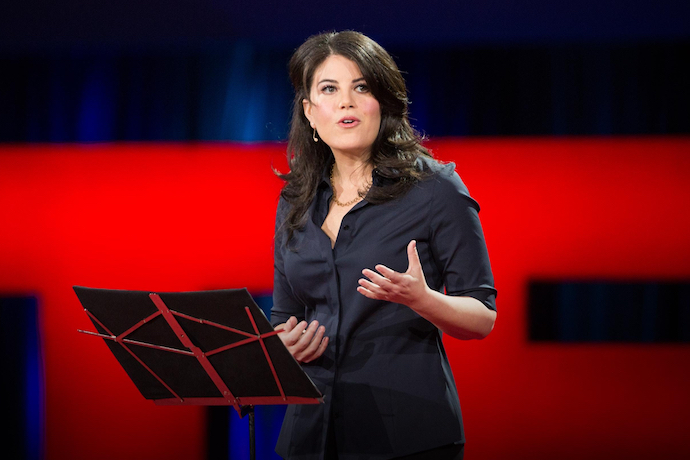
Politics
Lewinsky, Clinton and ‘Zippergate’ Redux 2014
It’s scarcely a surprise that, a decade on, we’re still interested in hearing from a president’s mistress. It’s even less surprising that, a decade on, that mistress still wants to talk. The whys of our fascination, and the whys of Monica Lewinsky’s forthcoming Vanity Fair essay, seem fairly obvious. Humans like to talk about each other. Salacious stories stimulate, salacious stories sell. Much more interesting are the allegations of Lewinsky finally breaking her silence, of her putting the past behind her once and for all.
Memoir is well established as a thoroughly beleaguered genre. This doesn’t make the medium worthless – far from it – but the limitations need to be acknowledged.
Memoir is one person’s side of a story and – and this is where the forthcoming Lewinsky essay gets interesting – it’s a tale told at a fixed point in time. It’s useful as a psychological exercise, sure, and valuable as a piece of storytelling, but limited in its contribution to history. Limited, and perfectly illustrative of literature’s Unreliable Narrator.
In one of those odd coincidences, two friends in the space of two days revealed to me their results of the Bipolar Self-Test hosted by the Black Dog Institute’s website. Reading through the questions, my own lack of bipolarity seemed confirmed and, more interestingly, I felt fairly confident that at least one of my exes had it. Maybe two.
And it’s my post-fact dabbling in diagnostics that has me thinking about the Vanity Fair essay. While with them, it never occurred to me that any of my partners might have a mental illness. Love and intimacy, in my experience, tend not to share a bed with mental acuity. Years on, and while I might no longer be under the spell of amour, equally I doubt I’m any better placed to be objective about situations that were emotional rather than rational experiences.
Childhoods, for example, are a time compulsively idealised. For many, the stress and complexity of adulthood casts a sepia tint on youth. As though growing up was just one long, endless summer; that it was all carefree and that everything seemed possible.
If most of us had penned a memoir during our youth, I suspect anxieties and anguish would have featured more prominently than we’d like to remember. It’s the young, afterall, who are penning all that bad angsty poetry. My view is that we’re all substantially happier in our memories of childhood than we were at the time.

So does our adult tendencies of putting childhood “into context” – of comparing it to our current circumstances and recalling it all as innocent and blithe – mean that how we really felt as kids was less real? Does laughingly reflecting on the fears that troubled us as children mean we were any less scared at the time? Of course not.
The passing of time helps enormously with interpretation. Much less so, however, with precise recollections. Getting out of relationships – having time and space away from them – inevitably provides new insight, new interpretations, and enables us to identify patterns that at the time were skewed by sex and exquisite suffering. But this doesn’t make those sentiments felt when it was all hot and heavy any less real, less genuine or less important.
Lewinsky was in her 20s when she had sexual relations with one of the world’s most powerful men. She pursued a course of action that led to her preserving a semen-stained dress, testifying to the insertion of a cigar tube into her vagina and ultimately the impeachment of President Bill Clinton.
That all happened. Those watershed moments in US political history weren’t about interpretation, nor do they require a decade to be mulled over. The facts are well known. So what more can Lewinsky add to the story now? A decade on, and what possible difference does her regret make? Her embarrassment? Her maturity? Undoubtedly, years on, and she’s cringing and recoiling and deeply regretting choices in friends, in lovers, in hairstyles. Of course.
And, because she’s 40 years old now, no doubt she has developed very strong views about her actions, about his. She’s no longer the intern who had sexual relations with the president, rather, she’s an older, more worldly woman reflecting. Reconceptualising. Maybe even rewriting. Undoubtedly it’ll be interesting to read how Lewinsky feels about being the internet’s first political scandal. About her permanent place as a pop-culture punchline. The supposed spilling of her story will, undoubtedly, move many issues of Vanity Fair.
But it’s a retrospective that we’ll be getting, not some definitive truth.
This article was originally published on The Conversation. Read the original article.

